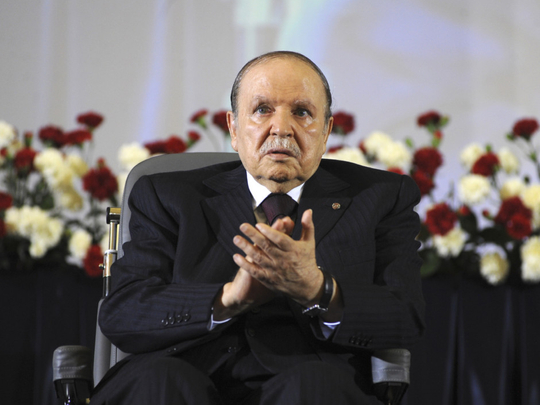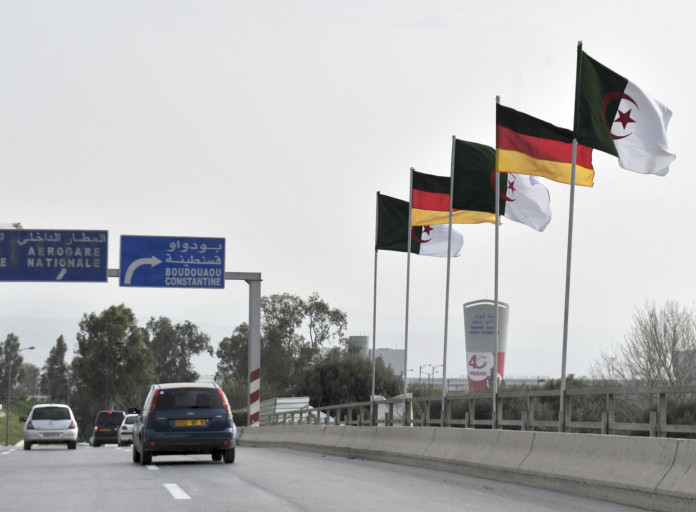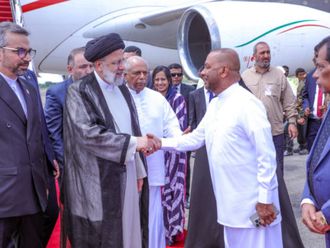
Algiers: An attack of severe bronchitis suffered by long-ailing Algerian President Abdul Aziz Bouteflika forced his country to call off a visit by German Chancellor Angela Merkel at the last minute on Monday.
The surprise cancellation was announced just an hour before Merkel’s plane was due to take off from Berlin, and as German flags already lined the Algiers airport for her arrival.
Merkel’s spokesman, Steffen Seibert, said “the Algerian government asked at short notice for the trip to be delayed. The chancellor complied with this wish.”
Algeria’s APS state news agency, citing a presidential statement, said Bouteflika’s “temporary unavailability” was due to severe bronchitis.
“The visit will be reprogrammed at a date that is suitable for the two parties,” the presidency said.
Bouteflika, 79, has rarely been seen in public since a 2013 stroke that left him confined to a wheelchair.
The two leaders had been scheduled to meet only briefly on Tuesday, shortly before Merkel’s departure for home. Algerian Prime Minister Abdul Malek Sellal was to have been Merkel’s main government interlocutor and host during the two-day visit that had been scheduled to start Monday evening.
Since the stroke, his state of health and medical check-ups have spurred debate about whether he will finish his term and who will replace him. He was re-elected in 2014 after a campaign where he was only seen when he came out to vote in a wheelchair.
New presidential elections are not due until 2019, but Bouteflika’s opponents have called for an early ballot because of his frailty. Government officials and his supporters say he is in charge and able to rule the country.
Algeria is a major gas supplier to Europe and after coming through its own war against armed Islamists in the 1990s has become a key partner in the Western campaign against Islamist militancy in the Sahel and other parts of Africa.
Both sides had seen it as an important visit. Merkel wants better cooperation in limiting migration from Africa to Europe and the extremist violence that has hit Europe, such as the December attack on Berlin by a Tunisian migrant claimed by the Daesh terror group.













